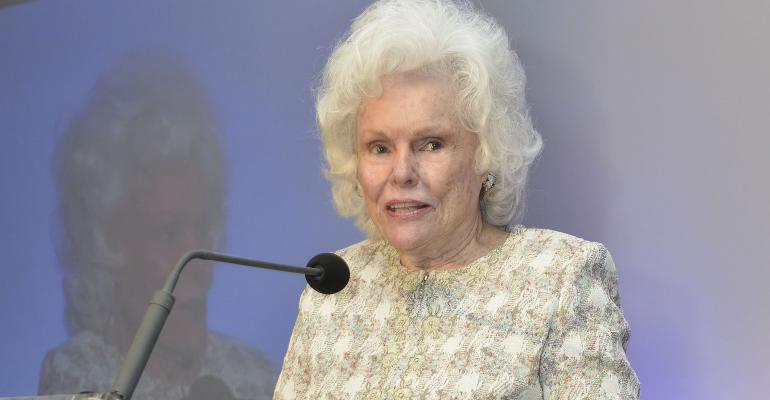There has been much recently written about Doris Buffett, the sister of Warren Buffett, and her efforts to gift millions of dollars to disadvantaged individuals. Ms. Buffett received a substantial inheritance after her mother’s death in 1996 and has since vowed to “give it all away,” with more than $100 million given away to date. Ms. Buffett provides funds to individuals who have fallen on hard times, with special empathy for the working poor and families in crisis, largely through her private foundation, The Sunshine Lady Foundation, Inc. Ms. Buffett’s goal is to provide “life-changing” grants; her gifts average approximately $4,800, though they can be much larger.1 Lately, Ms. Buffett has generated more public interest with her request for the assistance of local volunteers in the Boston area to aid her in reviewing the requests and determining deserving recipients.
The generosity of Doris Buffett is inspiring and contagious. To the extent this strikes a chord with others who want to assist those less fortunate, there are a variety of considerations to take into account when making gifts to needy individuals.
Grants From a Private Foundation
For those who make grants from a private foundation to individuals for travel, study and related purposes, the foundation must have a grant procedure approved in advance by the Internal Revenue Service.2 However, grants for purposes other than travel and study—for example, grants to aid the indigent—don’t require a procedure approved in advance. However, the grants must be made on a true charitable basis in furtherance of the purposes for which the foundation was organized.3 The recipients of the grants must make up a charitable class and be selected in a non-discriminatory and objective manner. Finally, grant programs may not create improper benefits or allow for private inurement.
It would be wise to develop a grant application and to maintain documentation of the grants in order to establish that they’re made for charitable purposes and don’t provide an undue benefit to a private individual.4 Documentation should generally include: a complete description of the assistance provided; the purpose for which the aid was provided; how the recipient was selected; the recipient’s name, address and the amount distributed to the recipient; any relationship between a recipient and officers, directors or key employees or substantial contributors to the foundation; and the composition of the selection committee approving the assistance.5 Consideration should also be given to hiring a social worker to assist in putting the grants to effective use.
Outright Gifts
For those who wish to personally provide financial assistance to disadvantaged individuals, the simplest solution may be to make an outright gift to accomplish this goal. There are reporting requirements associated with gifts from one individual to another if the gift is in excess of the annual exclusion amount (currently $14,000 or $28,000 if the donor is married and their spouse agrees to “split” the gift); however, these reporting requirements on Form 709, the United State Gift (and Generation-Skipping Transfer) Tax Return, are relatively minimal. In terms of tax consequences, such gifts will not count against an individual’s lifetime exemption from federal estate and gift6 tax so long as the aggregate amount paid to any one individual is under the annual exclusion amount. Although the catalyst for charitable gifting is generally altruistic rather than tax-related, it is important to note that there’s no income tax deduction for individual gifts made directly to needy individuals for charitable purposes.
Endnotes:
1. DeCosta-Klipa, Nik, “Warren Buffett’s Sister Would Like Help From Boston Deciding How to Hand Out Her Brother’s Money,” Boston.com (Aug. 14, 2016), https://www.boston.com/news/business/2016/08/14/warren-buffetts-sister-needs-help-from-boston-deciding-how-to-hand-out-her-brothers-money.
2. Section 4945 of the Internal Revenue Code (“IRC”) provides that grants to individuals for travel, study or similar purposes are taxable expenditures, and subject to penalty excise taxes, unless the grants are awarded on an “objective and nondiscriminatory basis pursuant to a procedure approved in advance by the Internal Revenue Service.” IRC Section 4945(d)(3) and (g).
3. See Private Letter Ruling 199917079 (April 30, 1999), PLR 9237043 (June 19, 1992) and Treasury Regulation 1.170A-4A(b)(2)(ii)(D). See also Treas. Reg. Section 53.4945-4(a)(3)(i).
4. IRS Publication 4221: Compliance Guide for 501(c)(3) Private Foundations at p. 19, https://www.irs.gov/pub/irs-pdf/p4221pf.pdf.
5. See also, IRS Publication 3833: Disaster Relief, Providing Assistance Through Charitable Organizations at p. 13, https://www.irs.gov/pub/irs-pdf/p3833.pdf.
6. The state of Connecticut also imposes a gift tax on gifts in excess of the annual exclusion amount.





